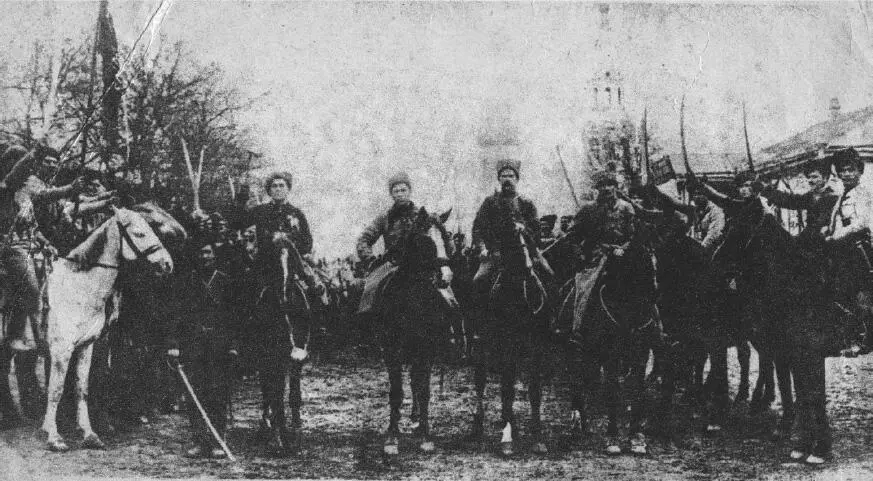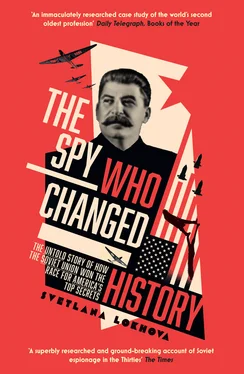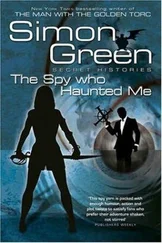1 ...6 7 8 10 11 12 ...21 The foreigner’s decisive intervention in local affairs added a new level of confusion to an already complicated situation. The local oil industry was too valuable a prize for anyone to ignore. The area around Baku was strategically precious. Since 1898, the Russian oil industry, with foreign investment, had been producing more oil than the entire United States: some 160,000 barrels of oil per day. By 1901, Baku alone produced more than half of the world’s oil. 37There were already millions of dollars of foreign capital sunk into the derricks, pipelines and oil refineries, and now it was all up for grabs. Every city, indeed seemingly the whole country, was the pawn of foreign powers. Shumovsky had seen the British arrive first, to be kicked out by the Turks, only to return later, while each time their local proxy allies set about massacring the innocent inhabitants who were unlucky enough to be born on the wrong side. He perceived this not just as a civil war of Reds versus Whites, but also as an embodiment of the worst excesses of imperialism and deep-seated ethnic hatred – precisely the cataclysm described in the leaflets he had distributed in Kharkov. Only the unity of the working people could fight off the massed forces of imperialism descending on Russia.
• • •
Within the wider tragedy was a family one. Despite the danger and vast distance involved, Shumovsky’s mother Amalia overcame her fear of war each summer after the family’s dramatic flight and went back to Volyn (today in the far west of Ukraine) to visit her father. He was still serving as an estate manager. In 1918 disaster struck when she failed to return to the family home by the expected date. Shumovsky’s father sent a letter, care of his father-in-law, asking for information about the whereabouts of his wife. The letter came back, and written on the envelope were the stark words: ‘not delivered owing to the death of the recipient’. 38
By the summer of 1918, Shumovsky woke each day to see parts of his city burning and fresh bodies lying in the streets. Fear was in the air. Mobs attacked churches and mosques in turn, and random ethnic murders were commonplace as the city’s population was divided down the middle. When Shumovsky arrived in the Caucasus, the army presence had kept an uneasy peace for the past fifty years. Now army deserters returned from the collapsed Turkish front, armed to the teeth, so the ethnic violence became organised and prolific. Shumovsky had played a role in the underground revolutionary movement in Kharkov with his classmates. Aged just sixteen, he decided to move on from distributing leaflets and reading underground newspapers quoting Lenin to fighting for his vision of a better future.
Shumovsky had completed his five years of secondary education. By his own account, he was already a gifted linguist, speaking Russian, Polish and Ukrainian as well as French and German, although not English. The anarchy now gripping Shusha led to the eventual closure of his prestigious technical school. Although the landmark building survived the violence, it was left abandoned, a shadow of its former glory, after the factional fighting subsided. One of the few non-Armenian pupils, Shumovsky had been a star student, studying mathematics and the sciences. Now he made his first life-changing decision, to join the Red Army to fight in the Civil War. He was one of a very small number of Communists, who were a tiny minority in the country at large. Shumovsky was turning his back decisively on his Polish and aristocratic roots, a fact clearly indicated when he changed his patronymic from the Polish-sounding Adam to the Russian Anton. 39On volunteering for the Red Army, indeed, Shumovsky concealed much about his privileged upbringing, telling the recruiters he was the son of a Ukrainian peasant worker who somehow spoke French and German. 40
• • •
The destruction and loss of life during the Russian Civil War was among the greatest catastrophes that Europe had seen. The conflict would rage with enormous bloodshed from November 1917 until October 1922. As many as 12 million died, mostly civilians who succumbed to disease and famine. 41It was a time of anarchy. The armed factions lived off the land, extracting supplies and recruiting ‘volunteers’ at gunpoint while fighting to determine Russia’s political future. The two largest combatant groups were the Red Army, fighting for the Bolshevik form of socialism, and the loosely allied forces known as the White Army. The divided White factions favoured a variety of causes, including a return to monarchism, capitalism and alternative forms of socialism. At the same time rival militant socialists, anarchists, nationalists, and even peasant armies fought against both the Communists and the Whites.
Shumovsky and his unit were stationed in southern Russia, at the centre of the bloodiest fighting. In all the carnage and suffering he was one of many teenagers given positions of responsibility in the army. There was nothing in his genteel background to prepare Shumovsky for the terrors he faced on the battlefield. In August 1918, he made a long, daunting and arduous journey of several hundred miles on foot to join a determined band of Communist partisans under their charismatic leader Pyotr Ipatov, based far behind the main battle lines. 42On his arrival Shumovsky was given a red armband, a rifle and a cartridge belt. He was in action within two days. Ipatov’s band supported the village militia units raised by local councils to fend off marauding armed bands of foragers from the White ‘Volunteer’ armies sent out by Generals Kornilov, Alekseyev and Denikin. 43The White leader, General Kornilov, ruled by fear. His slogan was ‘the greater the terror, the greater our victories’. In the face of the peasant resistance he was sticking to his vow to ‘set fire to half the country and shed the blood of three-quarters of all Russians’. 44In small towns and villages across the province Kornilov’s death squads put up gallows in the square, hanged a few likely suspects and reinstalled the hated landlords by force. Rather than quell the unrest, such punitive action encouraged the Red partisan movement. Shumovsky’s unit had grown strong enough to take the fight to the enemy, carrying out successful raids on White outposts to capture arms and ammunition. The fighters enjoyed the active support of Joseph Stalin and Kliment Voroshilov, who were leading the defence of the nearby city of Tsaritsyn. 45

Shumovsky’s band of partisans, 1918
By the time young Shumovsky joined the fight, the Whites’ patience with the guerrilla attacks had reached breaking point. They decided to crush the partisan movement for good with an overwhelming force. Ahead of the harvest, the Whites unleashed a punitive expedition consisting of four elite regiments of troops supported by Czech mercenaries. When the partisans received the news of the approach of this powerful force, they prepared a last-ditch ambush at the village of Ternovsky. Shumovsky helped to dig deep defensive trenches around the village. Eager to fight, two thousand volunteers streamed into the village responding to the desperate call for help. Ipatov’s force had rifles, some machine guns and a captured field gun. The balance of defenders were enthusiastic but untrained farmers, armed only with homemade weapons.
The enemy approached in strength at dawn, expecting little resistance from the village militia. To the defenders’ surprise, the Whites attacked head-on in a column, not even deploying properly for an attack. Maintaining uncharacteristic discipline, the partisans opened fire on the advancing enemy when they were just 150 yards away. The first volley stunned the Whites, who struggled to respond, not even returning fire. The partisan force, having quickly run out of ammunition, charged out of their trenches in pursuit of their broken enemy, waving pitchforks, shovels, axes, iron crowbars and homemade spears. No prisoners were taken. Shumovsky’s first taste of action had been brief, bloody and chaotic. The defenders celebrated their decisive victory and the booty of arms and ammunition that had fallen into their laps. 46
Читать дальше













